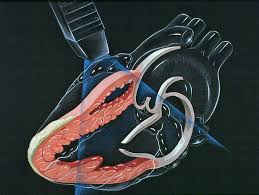Chest pain often causes fear and confusion. A cardiologist uses specific steps to identify the source of the chest pain and respond with the right care. Their goal is to protect your heart and guide you toward to right steps to recovery.
Diagnosing the Source of Chest Pain
The first step involves asking you about your symptoms, health history, and daily habits. Your cardiologist will ask when the pain started, how long it lasts, and what makes it worse or better. A physical exam follows to assess your heart, lungs, and circulation.
- Electrocardiograms help detect heart rhythm issues or signs of a heart attack.
- Blood tests check for proteins that appear when the heart muscle is damaged.
- Imaging tools offer a closer look at your heart and nearby organs.
- Echocardiograms use sound waves to create moving pictures of the heart.
- CT scans and X-rays can show blockages or changes in the heart’s structure.
If needed, your doctor may recommend a stress test to see how your heart responds to activity. These early tests give your doctor a starting point to decide what to do next. For clearer answers, coronary angiography may be used. This test sends dye through the blood vessels and takes X-ray images. It reveals where arteries are blocked or narrowed, allowing the doctor to plan treatment right away.
Treatments That Target the Cause
Once the cause is clear, treatment begins. Medication is often the first choice. Drugs like nitroglycerin can relax blood vessels and ease pain. Blood thinners help reduce the risk of clots and heart attacks. Other drugs like beta-blockers or ACE inhibitors lower blood pressure and help the heart work more efficiently. In some cases, changes to your lifestyle can reduce chest pain. Doctors often recommend a diet filled with vegetables, fruits, lean protein, and whole grains.
Regular movement, like walking or swimming, helps the heart stay strong. If you smoke, stopping can improve your heart health quickly. Managing stress also plays a big role in long-term wellness. When arteries are blocked, cardiologists may use a procedure called angioplasty. A small balloon opens the artery, and a stent keeps it open. This restores blood flow and can stop pain. For more serious blockages, bypass surgery may be needed. Surgeons use healthy vessels to reroute blood around the damaged artery.
Non-Heart Causes of Chest Pain
Chest pain doesn’t always come from the heart. It can be caused by stomach acid, muscle strain, or lung problems. Cardiologists work with other specialists to find and treat these problems.
Heartburn or acid reflux may be treated with antacids or medications that lower stomach acid. If the pain is muscular, doctors may suggest rest, physical therapy, or anti-inflammatory medicine. The goal is to treat the true cause and avoid unnecessary heart procedures.
Consult a Cardiologist for Better Heart Health
Prevention makes a big difference. Routine checkups help track cholesterol, blood pressure, and blood sugar. If these rise too high, your doctor can respond before problems begin. Managing chronic conditions like diabetes can reduce the strain on your heart. Sticking to a healthy diet and regular exercise plan also supports strong heart function.

